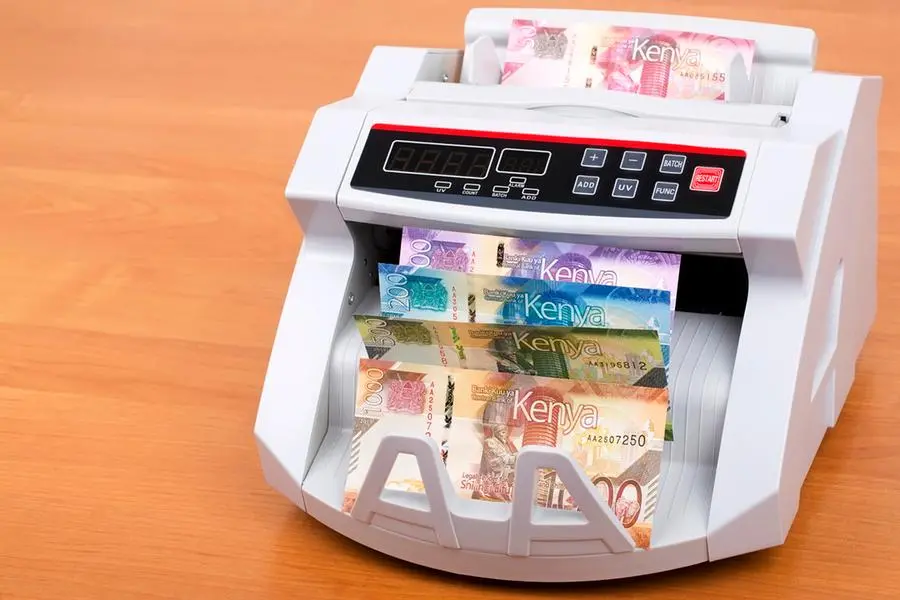PHOTO
President William Ruto’s grand plan to engineer a reduction in interest rates to a single digit through strategic money market intervention programmes appears to be running out of steam. This is exposing households and businesses to exorbitant borrowing costs at a time stubborn inflation has wrought havoc on consumers’ purchasing power.
The scheme to wrestle high interest rates, crafted around a three-pronged attack, sought to reduce borrowing costs in the economy to a single digit, shore up productive investments and lift the flagging economy to higher growth trajectory.
It included the state reducing its borrowing from the domestic market, conversion of short-term debts into long-term debts through a “bond switch” programme and persuading banks, pension funds and insurance firms to shift their multibillion-dollar investments in treasury bills and bonds into the real estate investments at the Nairobi Securities Exchange (NSE).
Read: Kenya pension schemes lose $77m in bond, equity dealsWhile the plan seems rosy, its effectiveness is now a matter of public debate.
The EastAfrican understands that Central bank, the government’s fiscal agent, has on several occasions rejected expensive bids for its bond issues and only reopen them later through tap sales.
In November 2022, President Ruto said the government would no longer borrow money at interest rates of more than 10 percent as the country’s cost of debt had become “unacceptable.”His remarks were elicited by the fact that the Central bank had borrowed Ksh60 billion ($416.66 million) from the domestic market through a 14-year Treasury Bond priced at 13.93 percent.
However, the interest rates have remained high, compounded by a surprise move by the Monetary Policy committee to raise the benchmark lending rate by 100 basis points in June from 9.5 percent to 10.5 percent to anchor inflation expectations.
Prudent investorsFor example, in the week ending August 17, the yields on the 364-day paper and 91-day paper increased by 40.6 basis points (bps) and 36.5 bps to 13.7 percent and 13.5 percent respectively while the yields on the 182-day paper decreased by 16.2 bps to 13.3 percent.
The weighted average yield on a two-year bond came in at 17 percent and that of a 4.9-year bond at 18 percent.
Read: Kenya targets $145m from reopened bonds saleThe coupon rate for the two-year and the 4.9-year bonds were fixed at 17 percent and 16.8 percent respectively.
Government data shows that the National Treasury has intensified its borrowing from the domestic market in the past 10 months to finance the government’s day-day operations and to pay off maturing debts, while an attempt to convert short term Treasury bills into a long term infrastructure bond collapsed last year after investors snubbed the deal.
This, along with high inflation which have caused banks, insurance firms and pension funds to demand inflation adjustment compensation, have compounded the high interest rate regime.
Investors in the money market are demanding compensation for the value of their money eroded by inflation, which stood at 7.3 percent in July.
The government’s gross domestic debt increased by 9.37 percent (Ksh409.09 billion, $2.84 billion) to Ksh4.77 trillion ($33.12 billion) on August 11, 2023 from Ksh4.36 trillion ($30.27 billion) in September 2022, central bank data shows.
Resource mobilisationOf this, government investment in Treasury bills and bonds increased by Ksh357.31 billion ($2.48 billion) to Ksh4.66 trillion ($32.36 billion) from Ksh4.3 trillion, accounting for an 8.29 percent growth in the same period.
Treasury bonds constitute 87.84 percent of the government debt.
Read: Kenya’s debt up record $10.8bnIn December last year, the National Treasury was caught up with a Ksh40 billion ($277.77 million) debt repayment demand after failing to convince ordinary bondholders to shift their Ksh87.8 billion ($609.72 million) investments into new six-year Infrastructure bond.
However, the government assembled a team of investment bankers to advise and help structure the Real Estate Investment Trusts (REITs) to make them an attractive investment option for pension funds, insurance firms and banks.
The state hopes to persuade commercial banks, pension funds and insurance companies transfer their Ksh4.12 trillion ($28.61 billion) worth of investment in government securities into real estate investments at the NSE to fund the affordable housing plan through the Sanduku Investment Initiative.“The spike in interest rates exposed many investors to loss. Those who bought (government paper) at 11 percent lose because the paper is at 16 percent. If they were to sell today, they would suffer a 45 percent loss,” Sanduku Investment Initiative’s Chairperson Tom Mulwa told The EastAfrican last week.“There is no need to convince any prudent investor to diversify. REITs return is guaranteed and secured with assets.”The Sanduku Initiative’s mandate is to identify and institutionalise a resource mobilisation plan to raise Ksh500 billion in the first year to fund the government’s affordable housing plan.
It has since incorporated the Kenya National REIT, a company limited by guarantee and owned by the financial services firms in the private sector.
However, Mr Mulwa says the legal framework for the implementation of the government’s initiated real estate investments on the stock market has delayed due to unknown reasons.
Read: Wealthy Kenyans turn to real estate investments“The legal framework has taken more time than anticipated but having started in November 2022 we definitely will have deployed within the one year (November 2023),” he said.
According to Mulwa KNR is already working with the Capital Markets Authority (CMA) and Nairobi Securities Exchange to bring REITs into the stockmarket.“We are in motion and by November we shall showcase a score card,” he added.
The CMA how says it has allowed the KNR to be registered as an aggregator sort whose main role is to certify REITs that wish to benefit from government horizontal developments.“It is now the role of the investors behind the projects to promote the various REITs,” said CMA Chief Executive Wycliffe Shamiah. © Copyright 2022 Nation Media Group. All Rights Reserved. Provided by SyndiGate Media Inc. (Syndigate.info).
JAMES ANYANZWA





















